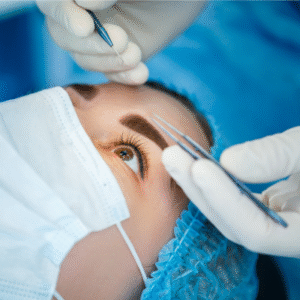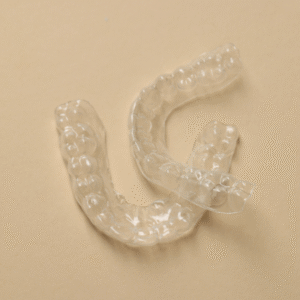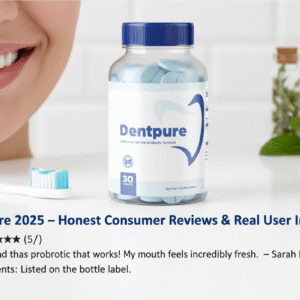Hydrogen peroxide is one of the most widely used ingredients in dentistry. You’ll find it (or carbamide peroxide, which breaks down into hydrogen peroxide) in professional tooth-whitening gels and, at much lower strengths, in some mouthwashes and pastes. But is peroxide actually good for your teeth and gums—or just a necessary chemical that must be handled with care? If you live in London and you’re weighing up whitening or looking for a mouthrinse to improve gum health, this guide walks you through the science, UK legal limits, benefits, risks, and smart ways to use peroxide safely.
The short answer
Used correctly and at appropriate concentrations, peroxide can safely whiten teeth and reduce certain bacteria that contribute to gum problems. However, benefits depend on dose, duration, and supervision. In the UK, tooth whitening with peroxide is legally restricted to dental professionals for patient safety, and over-the-counter strengths are intentionally low. Misuse—especially high strengths without supervision—can cause sensitivity, gum irritation, or uneven results.
How peroxide works in the mouth
Hydrogen peroxide is an oxidiser. In whitening gels, it penetrates enamel and breaks down chromogens (staining molecules) to lighten the underlying tooth shade. In mouthrinses, low-strength peroxide releases oxygen, creating an environment that’s less hospitable to anaerobic bacteria implicated in gingivitis and bad breath. Clinical reviews suggest peroxide rinsing can modestly reduce plaque and gingival inflammation when used as an adjunct to brushing and flossing, though results are variable and not universally strong.
Carbamide vs hydrogen peroxide
Many “home whitening” gels from your dentist use carbamide peroxide (e.g., 10–16%), which converts to roughly one-third hydrogen peroxide during use. The clinical end-point is similar—what matters most is the available hydrogen peroxide at the tooth surface and the protocol your dentist prescribes.
What UK law says (and why it matters)
If you’re in London, you’ll notice reputable clinics emphasise compliance. That’s because UK regulations are strict:
-
Whitening products over 6% hydrogen peroxide are illegal for cosmetic use.
-
Products between 0.1% and 6% can only be supplied by a dentist (or certain registered dental professionals) after a clinical exam, with the first use under professional supervision.
-
These products cannot be used in under-18s except to treat or prevent disease.
-
Over-the-counter or internet-bought products in the UK are legally limited to 0.1% hydrogen peroxide, which is too low to meaningfully whiten teeth.
These safeguards exist to prevent burns, severe sensitivity, and damage from high-strength or misused products. Always check you’re being treated by a GDC-registered professional in a legitimate clinic.
Is peroxide good for gums?
Potential benefits (with realistic expectations)
Low-strength peroxide rinses have mild antiseptic action and may help reduce gingival redness when used alongside solid daily hygiene (brushing with fluoride toothpaste, interdental cleaning) and professional care. Some evidence shows reductions in microbial load and plaque, but the effect is generally modest compared with gold-standard agents like chlorhexidine (which itself has staining and taste-alteration drawbacks, so it isn’t for long-term routine use either). For many people, peroxide rinses are best seen as temporary adjuncts, not a standalone cure for gum disease.
When to see a dentist
Bleeding when brushing, puffy or tender gums, persistent bad breath, or gum recession are all reasons to book a dental examination. Early gingivitis can often be reversed with professional cleaning and home-care coaching; established periodontitis needs tailored periodontal treatment—not just a mouthwash. Self-treating gum disease with random rinses risks masking symptoms while the condition worsens.
Is peroxide good for teeth?
Whitening under professional care
When prescribed and supervised by your dentist, peroxide-based whitening (home trays or in-surgery protocols) is considered safe and effective, with sensitivity usually transient and manageable. London practices typically provide custom trays, regulated gels (0.1–6% hydrogen peroxide equivalent), written instructions, and reviews to monitor comfort and shade progression.
DIY risks and online kits
Beware of non-compliant kits bought online that may far exceed legal limits. Investigations have found some internet products containing dangerously high peroxide levels—hundreds of times the UK limit—posing serious risks to enamel and soft tissues. Choose a regulated route via a GDC-registered clinic.
Common side effects—and how to minimise them
-
Tooth sensitivity: Usually temporary; your dentist can adjust wear time, switch to lower-strength gel, or add desensitising agents (e.g., potassium nitrate/fluoride).
-
Gingival irritation/ulceration: Often due to gel overflow onto gums or ill-fitting trays—another reason custom trays and supervision matter.
-
Uneven whitening: Teeth with heavy internal stains, exposed roots, or multiple restorations may whiten unpredictably; crowns and fillings don’t change colour and may need replacing for best aesthetics post-whitening.
Follow your dentist’s protocol to reduce risk; don’t extend wear time or frequency on your own.
Where peroxide fits among London whitening options
If you’re comparing invisible dental braces followed by teeth whitening, or you’ve just finished aligner treatment and want to brighten safely, talk to your dentist about timing (often after orthodontics to avoid shade mismatch as teeth move) and the right gel strength for your sensitivity profile. Professional whitening remains the safest route in the UK because you’re using regulated gels and custom trays under clinical oversight.
What about peroxide toothpastes and rinses on the high street?
-
Toothpastes: UK-legal OTC products have very low peroxide or rely more on gentle abrasives and stain-lifting agents. They can help with surface stains but won’t deliver the shade change of professional whitening. Use fluoride toothpastes to protect against decay; if sensitivity is an issue, consider formulations with potassium nitrate or stannous fluoride.
-
Mouthwashes: Peroxide mouthrinses at pharmacy strengths may be suggested short-term for specific cases (e.g., minor ulceration or inflammation), but they’re not a long-term substitute for periodontal care or mechanical plaque control. Always follow label directions and your clinician’s advice.
Safety first: practical tips for Londoners
-
Start with an examination. Your dentist will check gum health, enamel condition, and existing restorations before recommending whitening or adjunctive rinses. UK guidance is clear: powerful whitening agents should be prescribed and overseen by dental professionals.
-
Use the right strength for the right job. Whitening needs regulated gel strengths in custom trays; daily hygiene needs fluoride toothpaste and interdental cleaning. Peroxide rinses may be used short-term as advised—don’t improvise mixtures at home.
-
Manage sensitivity proactively. If you’ve had sensitivity before, ask about lower-strength gels, shorter wear schedules, or desensitising toothpaste before and during whitening.
-
Avoid dodgy online kits. If the deal seems too good to be true—or the seller can’t confirm compliance with UK limits—walk away.
The bottom line
Peroxide isn’t “good” or “bad” in itself—it’s a powerful clinical tool. Within the UK framework, peroxide-based whitening prescribed by a dentist is safe and effective and remains the gold standard for predictable shade change. Low-strength peroxide rinses can play a supporting role for gums, but they’re no cure-all; sustained gum health comes from professional cleaning, tailored periodontal care, and meticulous home hygiene.
If you’re in London and considering whitening—or wondering whether a peroxide mouthwash could help your gums—book a dental examination first. You’ll get a personalised plan that balances effectiveness with comfort and safety, in line with UK law and best practice.




